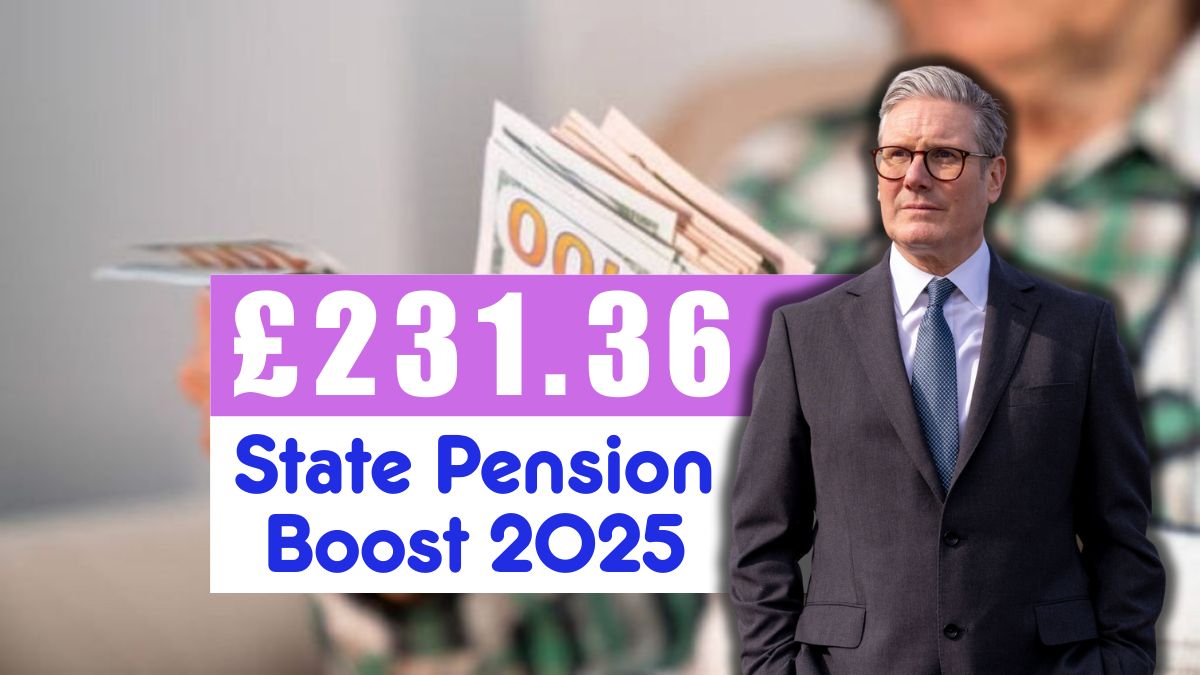The Department for Work and Pensions (DWP) has officially confirmed seven new banking rules that will reshape how pensioners across the UK receive and manage their State Pension payments.
The changes — scheduled to come into effect in late 2025 — are designed to enhance financial security, combat fraud, and modernise pension management in line with the UK’s wider move toward digital banking and anti-fraud measures.
With over 12 million pensioners depending on State Pension income, the DWP is urging recipients to prepare early to avoid payment disruptions once the new framework is rolled out.
Why the New Rules Are Being Introduced
According to the DWP, the reforms are a direct response to rising digital fraud, banking security concerns, and the need for faster, more reliable pension processing.
Officials say the new system will:
- Strengthen identity verification and protect pensioners from scams.
- Ensure pension payments reach the correct account holders only.
- Eliminate outdated, high-risk payment methods such as paper cheques.
- Improve coordination between banks, post offices, and the DWP’s payment network.
The government’s goal, the DWP said, is to “deliver secure, modern, and transparent pension management for every retiree in the country.”
The Seven New Banking Rules Explained
1. Digital Verification for Pension Payments
From 2025, all pensioners will be required to complete a digital identity verification process before continuing to receive pension payments directly into their bank accounts.
This new requirement is intended to prevent identity fraud and ensure that pension funds are deposited only to legitimate recipients.
The DWP will partner with major UK banks and the National Fraud Initiative (NFI) to create a secure, government-approved verification network.
For pensioners without smartphones or internet access, in-person verification will remain available at Post Office branches and selected bank locations.
How to prepare:
- Ensure your bank and DWP records include your most recent contact details.
- Attend DWP verification sessions once invitations are issued.
- Keep personal identification (passport, driving licence, or National Insurance details) ready for authentication.
2. Mandatory Bank Account Checks
Under the new framework, pension payments will only be made into active UK bank or building society accounts.
The DWP will carry out regular checks to identify dormant, duplicate, or inactive accounts to reduce the risk of fraud and lost payments.
If your account shows no activity for an extended period, the DWP may temporarily pause payments until you confirm your account is active and valid.
Pensioners should:
- Keep accounts active by making small, regular transactions.
- Notify their bank and the DWP immediately if they change or close an account.
- Avoid leaving accounts dormant for long periods.
This rule helps protect pensioners’ funds while keeping payment systems secure and efficient.
3. Direct Deposit Requirement
From 2025, the DWP will phase out pension payments via cheque or third-party accounts.
All payments will instead be made through direct deposit into each pensioner’s personal, verified bank account.
This measure will:
- Eliminate risks of misdirected or lost cheques.
- Reduce delays caused by postal payments.
- Strengthen fraud detection through traceable digital records.
Pensioners who currently receive paper cheques will receive official letters explaining how to switch to direct deposits well before the transition date.
4. Limits on Cash Withdrawals
In coordination with the Treasury’s 2025 financial transparency reforms, the DWP will introduce a daily cash withdrawal limit of £3,000 for pension-linked accounts starting in October 2025.
This rule aims to keep pension transactions traceable and reduce financial exploitation of older people.
Most pensioners are unlikely to be affected, as the limit comfortably covers ordinary spending. However, those who typically withdraw their entire monthly pension in cash will need to adjust their withdrawal habits.
Tips for pensioners:
- Use online or phone banking to pay bills directly.
- Keep moderate cash reserves for emergencies.
- Contact your bank if you require a one-time larger withdrawal (e.g., for home repairs).
5. Enhanced Fraud Protection and Alerts
To safeguard against scams, the DWP and UK banks will implement advanced fraud detection systems powered by real-time transaction monitoring and AI-driven alerts.
This system will detect unusual withdrawals, new payees, or suspicious login attempts, automatically flagging them to both the pensioner and the bank.
How pensioners can stay protected:
- Never share PINs, passwords, or banking details by phone or text.
- Enable two-factor authentication (2FA) for all online banking access.
- Report suspicious messages or calls immediately to your bank or the DWP’s Fraud Helpline.
The DWP says the new fraud-prevention framework could reduce pension-related scams by up to 40% within the first year of rollout.
6. Pension Payment Date Adjustments
To improve reliability and consistency, the DWP will now align pension payment dates with the UK’s national banking calendar.
If a pension payment date falls on a weekend or bank holiday, the payment will automatically be issued on the previous working day.
This means pensioners will always receive funds before closures — avoiding delays caused by banking schedules.
Pensioners will receive advance notifications of any changes through official letters, emails, and text alerts from the DWP.
7. Bank Reporting and Transparency Rules
Banks will now be required to report large or unusual pension-related transactions to the DWP’s Financial Monitoring Unit.
This new requirement is designed to:
- Protect pensioners from financial exploitation or coercion.
- Detect cases of fraud, scams, or suspicious third-party transfers.
- Create a transparent and secure pension tracking system across all banks.
Reports will only cover high-value or irregular transactions and will comply fully with the Data Protection Act (DPA) and UK GDPR standards.
Why These Banking Rules Matter
The DWP said the seven rules will “modernise the pension payment landscape” while keeping inclusivity and accessibility in focus.
Key benefits include:
- Stronger protection against pension fraud and digital scams.
- Faster and more consistent payments across all UK regions.
- Clearer accountability between banks and the DWP.
- Improved confidence among pensioners using online or mobile banking.
Given the rapid rise of digital transactions and cybercrime, these updates are viewed as both necessary and timely.
How Pensioners Can Prepare Before 2025
To ensure a smooth transition, pensioners are advised to begin preparations well ahead of the implementation date.
Checklist to stay ready:
- Update your personal and contact details with both your bank and the DWP.
- Register for online or mobile banking to monitor pension deposits easily.
- Verify your digital identity through GOV.UK or your bank’s secure platform.
- Keep records of all pension payments for reference and reporting.
- Attend DWP guidance sessions at Post Offices, community centres, or online webinars.
By acting early, pensioners can avoid interruptions and take full advantage of the new system’s safety features.
Support for Pensioners During the Transition
Major UK banks — including Barclays, Lloyds, HSBC, and NatWest — are working directly with the DWP to ensure the rollout is as smooth as possible.
Support measures include:
- Dedicated helplines for pension-related banking issues.
- Free digital banking tutorials for elderly customers.
- In-branch verification sessions for non-digital pensioners.
Banks have also promised to maintain face-to-face services for those unable or unwilling to transition fully to digital systems.
A Barclays spokesperson said:
“We recognise that many older customers prefer traditional banking. Our priority is to ensure accessibility for all, while helping customers feel safe using digital services.”
Public Response to the Announcement
Reactions among pensioners have been mixed. Many have welcomed the tighter security and fraud protection, while others fear that the growing shift to digital banking could marginalise those without internet access.
Age UK and other advocacy organisations have urged the DWP to ensure a “hybrid approach”, maintaining both online and offline service options.
The DWP has reassured that no pensioner will lose access to payments or be forced into digital systems against their will. Every rule includes alternative verification and support methods for non-digital users.
DWP’s Official Statement
In its formal announcement, the DWP said:
“Our top priority is to protect pensioners’ hard-earned money and make accessing it safer and more reliable than ever. These new banking rules represent a modern, secure, and fair approach to managing pensions while maintaining accessibility for all.”
The department confirmed it will release detailed guidance packs in early 2025 and conduct nationwide awareness campaigns before enforcement begins.
The Bigger Picture: Towards Secure Digital Pensions
The 2025 banking reforms are part of a wider UK strategy to create a digitally secure, fraud-resistant financial system.
This strategy includes:
- Upgrading data-sharing standards between government and banks.
- Expanding the National Fraud Initiative’s monitoring capacity.
- Integrating DWP and HMRC systems for real-time payment tracking.
By modernising the pension payment infrastructure, the DWP hopes to strike a balance between innovation and inclusion — ensuring every pensioner benefits from technology without being excluded by it.
Frequently Asked Questions (FAQs)
1. When will the new DWP banking rules take effect?
The rules will begin rolling out in late 2025, with full enforcement expected by early 2026.
2. Will pensioners without internet access still receive payments?
Yes. Those without digital access can verify their identity and manage payments through Post Office branches or local bank offices.
3. How much cash can pensioners withdraw under the new rules?
A £3,000 daily cash withdrawal limit will apply to all pension-linked accounts from October 2025, ensuring safer, traceable transactions.
4. Will cheque payments be completely discontinued?
Yes. All State Pension payments will transition to direct deposits into verified personal bank accounts.
5. What if I suspect fraud or unusual activity on my pension account?
Contact your bank immediately and report the issue to the DWP Pension Fraud Helpline. You’ll receive alerts and assistance through the new fraud-monitoring system.


























